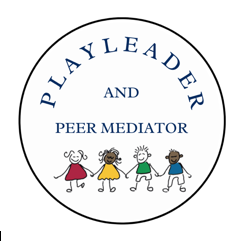Behaviour and Attitudes
Prosocial Relationships Policy
We have chosen to call our Behaviour Policy a Relationships policy, because it is about all of our relationships, between all stakeholders of the school, and not just about those between pupils. Our Prosocial Relationships policy is based on an expectation of good behaviour and positive relationships within a secure, caring and inclusive environment supported by a therapeutic approach. We emphasise the ways in which we can foster such a prosocial atmosphere, stressing the need for mutual respect, tolerance and understanding of every member of our school community.
While other factors, such as pupils’ home backgrounds, affect their behaviour, school-based influences are also very important. The most effective schools seem to be those that have created a prosocial atmosphere based on a sense of community and shared values. Our school follows both the Thrive approach and the Therapeutic Thinking approach to supporting children. This is reflected throughout our relationships' policy.
Our behaviour Flow Chart clearly explains, to all members of our school community, the procedures in place to manage and support children when something goes wrong in their day. A child-friendly Flow Chart allows a child to moderate and understand their own behaviours to avoid a situation escalating.
Therapeutic Thinking
Formerly known as Cambridgeshire Steps, Cambridgeshire Therapeutic Thinking (CTT) is an approach which focuses on how all children and young people can be supported in schools and other settings, particularly in terms of their emotional wellbeing and mental health. The programme also helps to develop an understanding of how to respond to those who may be communicating through their behaviour.
CTT is a school-led ethos that is characterised by an inclusive culture and underpinned by best practice, policies, and planning. The approach uses a range of resources to analyse a pupil’s behaviour to better understand their needs. This supports better planning for the pupil, their class and the wider school or setting, helping to prevent difficult or dangerous situations from occurring by highlighting the learning or experiences that the pupil needs.
The video below is a production of a poem to explain from a child's perspective the reasons behind their 'behaviours'. The poem ‘Why I am Rude’, was written by Sarah Dillon, National Association for Therapeutic Parents
 Play Leaders with Peer Mediator training
Play Leaders with Peer Mediator training
Conflict is a normal and unavoidable part of life and learning about the nature of conflict and how to resolve a conflict is a vital part of helping children develop relationships. Many children experience conflict on a daily basis but can resolve their problems quickly and independently. However, sometimes children will find it harder to resolve their conflicts and so, at Buckden Primary Academy, we have trained our Play Leaders to be able to facilitate and resolve conflicts in school.
